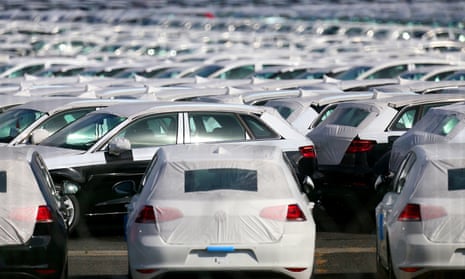Volkswagen is facing slowing orders for new cars, with consumers shunning the carmaker after it admitted to understating fuel usage and carbon dioxide emissions, VW’s top labour representative said.
“There is caution in buying,” the German company’s works council chief Bernd Osterloh told reporters. “The CO2 issue has triggered a greater crisis of confidence [in VW products] than the nitrogen [emissions] issue.”
VW said earlier this month it had manipulated the level of CO2 emissions in about 800,000 cars sold mainly in Europe. The company also said that it is expecting costs of at least €2bn (£1.4bn), including compensation payments to customers.
Two weeks later, VW said the CO2 cheating, which mainly involved diesel cars, affected more petrol-powered vehicles than previously disclosed.
The revelations about fuel economy and CO2 emissions have deepened the crisis at VW, which initially centred on software used on up to 11m diesel vehicles worldwide that the company admitted in September had vastly understated actual emissions of the pollutant nitrogen oxide.
Global sales of VW group vehicles fell 3.5% in October, though they edged up 0.5% in Germany. VW has denied reports that orders and sales have started to plunge in the wake of the CO2 admissions.
Osterloh, who also sits on the VW supervisory board’s influential steering committee, said there could be risks to jobs should the decline in orders persist.
“Employment is safe provided we are selling cars,” he said. “If we sell no cars, it will get relatively difficult.”
He added: “We will have to look at incoming orders of the next days, weeks and months.”

Comments (…)
Sign in or create your Guardian account to join the discussion